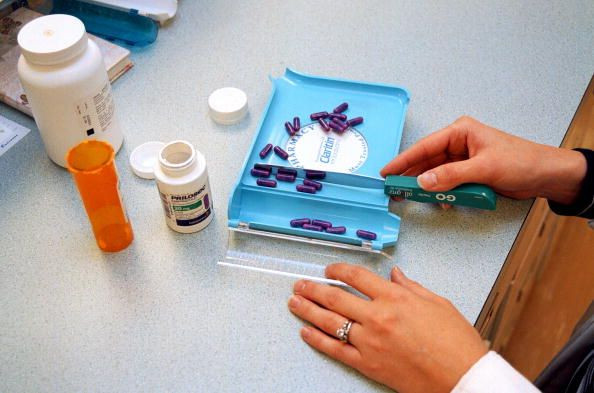Over-The-Counter Acid Reflux And Heartburn Medication Increases Risk Of Kidney Disease, Progressive Renal Failure

Every year, doctors prescribe medications to patients who complain of heartburn, acid reflux , or ulcers, and roughly 15 million Americans are given a class of drugs that can cause some serious, long-term damage to their kidneys. Researchers at the Clinical Epidemiology Center at the VA Saint Louis Health Care System and Washington University in Saint Louis zeroed in on proton pump inhibitors (PPI), one of the most widely sold and over-prescribed drugs in the world, to not only confirm from previous findings that it leads to kidney disease, but that it also led to renal failure at an alarming rate.
"The results emphasize the importance of limiting PPI use only when it is medically necessary, and also limiting the duration of use to the shortest duration possible," said the study’s lead author Dr. Ziyad Al-Aly, a professor of medicine at Washington University School of Medicine, in a statement. "A lot of patients start taking PPIs for a medical condition, and they continue much longer than necessary."
For the study, researchers selected 173,321 new users of PPIs, 20,270 new users of histamine H2 receptor blockers, which are in another class of medications that are also used as an acid suppressing regimen. They spent five years following up with the patients, who were selected from the Department of Veterans Affairs national databases. Their findings, published in the Journal of the American Society of Nephrology, reveal PPIs have the propensity to increase the risk of chronic kidney disease by 28 percent and developing kidney failure by 96 percent. They found the longer the patients took the drugs, the greater they put themselves at risk for kidney damage.
Recently, researchers from Johns Hopkins University published a study in JAMA ’s February 2016 edition that found the same risk exists between PPI use and chronic kidney disease. Not only do the results from Al-Aly and his team confirm the cause-and-effect between PPI use and chronic kidney disease, but they took their study a step further and found the medication also drastically increases the risk of developing kidney failure. To make matters worse, PPIs are also available over the counter.
“You or I could go to Walgreens or CVS and get Prilosec or other PPI medication over the counter and it has the same risks as prescription,” Al-Aly told Medical Daily. “We all assume that what we get over the counter is absolutely safe, I don’t have to worry about it because the FDA must have done their due diligence. But we’re finding with these medicines there is quite a negative effect and it should not be ignored, cannot be ignored.”
PPIs are a relatively new class of drug with highly limited long-term studies until now. Previously, patients with acid reflux relied on H2 blockers for acid reflux, however PPI drugs were seen as the more powerful and effective option for treating acid reflux. PPI drugs can be both prescribed and purchased over the counter — in strengths that both cause the same level of damage to the kidneys. Researchers recommend PPIs should be avoided, especially when acid reflux or the like can easily be treated with kidney-safe H2 blockers.
“Since PPI inhibitors are associated with this effect but the H2 blockers are not, I think that’s a useful control and gives legitimacy to the finding,” Dr. David Goldfarb, the clinical chief of nephrology and professor of medicine at NYU Langone Medical Center, told Medical Daily. “When they are able to look at another group of drugs used for similar indication and see that they don’t demonstrate an effect on kidney function; that makes their findings incredible.”
Researchers aren’t quite sure why PPIs have such a negative effect on the user’s kidneys. Al-Aly and his research team can only speculate it may have to do with patients who were at a higher level of risk because they had acute kidney injury or interstitial nephritis, which is inflammation of the kidney tubules, both of which could lead to renal failure.
“This is really the subject of ongoing investigation now so I cannot determine definitively. We’re just scratching the surface here,” Al-Aly said. “Next, we need to determine if there are any genetic markers that could predispose a patient to kidney disease progression with PPI use.”
Source: Al-Aly Z, Xie Y, Li T, and Balasubramanian S. Proton Pump Inhibitors and Risk of Incident and Progression of Chronic Kidney Disease and ESRD . Journal of the American Society of Nephrology. 2016.
Published by Medicaldaily.com



























